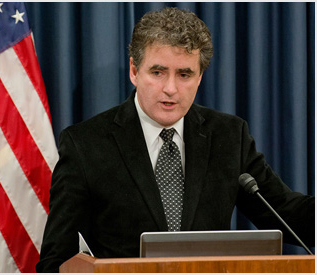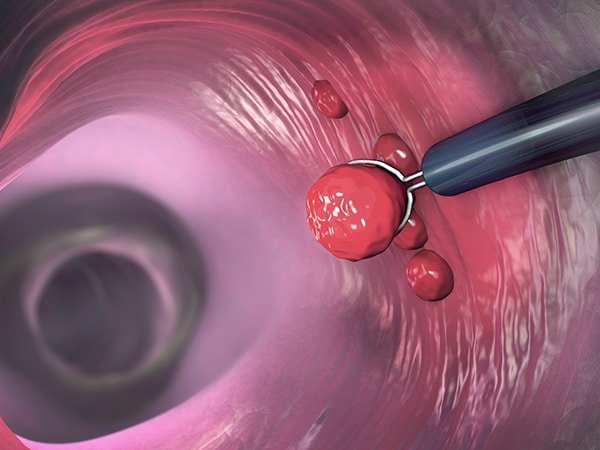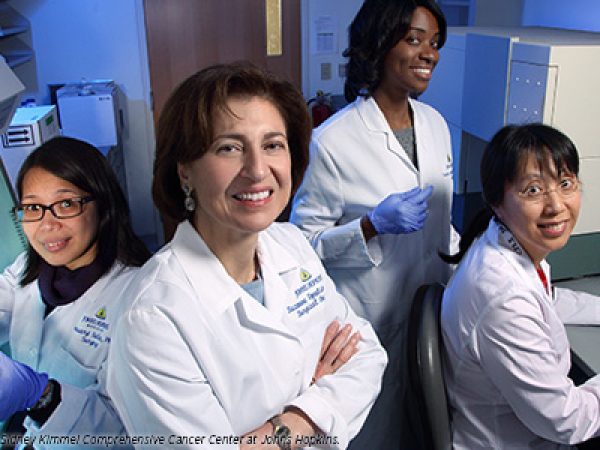Mike Fitzpatrick: Surviving Colorectal Cancer
Former U.S. Rep. Mike Fitzpatrick’s experience with colon cancer drives his efforts to support funding for the NIH and for cancer research.

At first, former U.S. Rep. Mike Fitzpatrick (R. – Pa.) chose to ignore the symptoms he was experiencing, writing them off as a virus that was not much to worry about.
“I was having a couple of busy weeks,” said the congressman.
But by spring 2008, it was clear that the symptoms were not going away, and when he talked to his wife about what he was experiencing, the symptoms had become even more pronounced.
“In retrospect, the symptoms were similar to what we know about colon cancer,” he said. “In fact, there are many things I know now about recognizing symptoms, as well as family history. In my case, four grandparents died from cancer; both my parents are cancer survivors, and a sister.”
At his wife’s insistence, Rep. Fitzpatrick went to the doctor for screening and soon after he was told he had colon cancer. In fact, he was diagnosed with stage 3 colon cancer.
Colorectal cancer is the fourth most commonly diagnosed cancer in the U.S., with an estimated 135,430 people having received the diagnosis in 2017, according the National Cancer Institute’s Surveillance, Epidemiology, and End Results (SEER) Program.
At the time of his diagnosis, Rep. Fitzpatrick was just 44 years old and a father of six. Forced to focus on his health and his future, he says that two words came to mind: cure or not.
In June 2008, he began four months of very aggressive treatment at the local community hospital. He had a course of chemotherapy and a “lifetime dose” of radiation, which was initially supposed to be followed by surgery.
However, following the mandatory, presurgery examination, he was surprised to learn that the tumor was gone. Someone told me that the tumor seemed to have “melted away,” he recalled.
Faced with a choice between having the surgery, regardless or foregoing the operation and proceeding with “post-surgery” chemotherapy, he opted for the latter. From October 2008 to March 2009, Rep. Fitzpatrick underwent the prescribed treatment, which left him tired and not feeling great most days. Nonetheless, he didn’t miss a day of work.
“Maybe it was a ‘life goes on’ effort, but it worked,” said Rep. Fitzpatrick.
With his illness in remission, he decided to return to public service. In January 2010, in front of the hospital where he had been treated, he announced that he would seek his old congressional seat.
“In the aftermath, I look at life knowing I’d been given a second chance. Of course, I always appreciated my family, my wife and six kids, seven siblings, parents – but facing your own mortality somehow changes the view. What we take for granted, soars. I even decided to have another run at Congress – and regained my former seat,” he said.
Rep. Fitzpatrick said that he believes his experience with colon cancer makes him a better advocate for the rights of citizens dealing with cancer and that he is much more passionate about debating the need for additional money for cancer research so the disease can be conquered once and for all.
He also has the utmost respect for the physicians and scientists who chose their career paths so others may live.
“They have my heartfelt gratitude,” he said.
You can read former Rep. Mike Fitzpatrick’s full story in the AACR Cancer Progress Report 2013.
The AACR was saddened to learn that Michael Fitzpatrick passed away January 6, 2020. We are deeply grateful to Rep. Fitzpatrick for sharing his experience with cancer in the AACR Cancer Progress Report 2013 and for his tireless efforts to support medical issues and cancer research as a member of Congress. We offer our heartfelt condolences to his family and friends.




